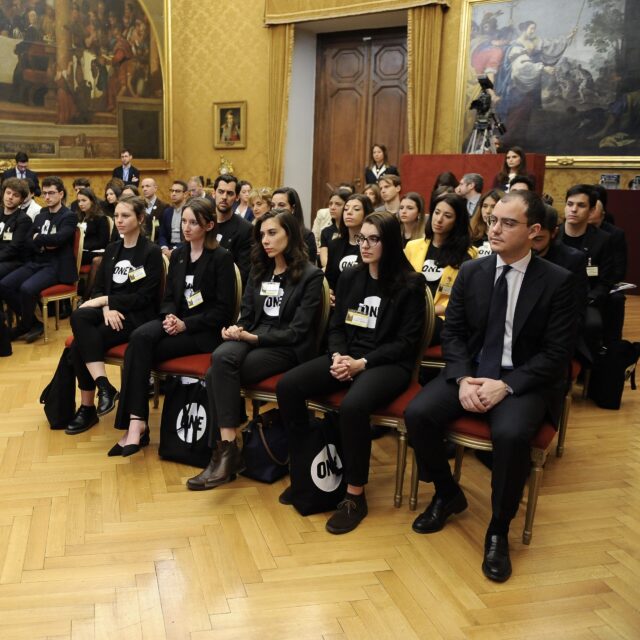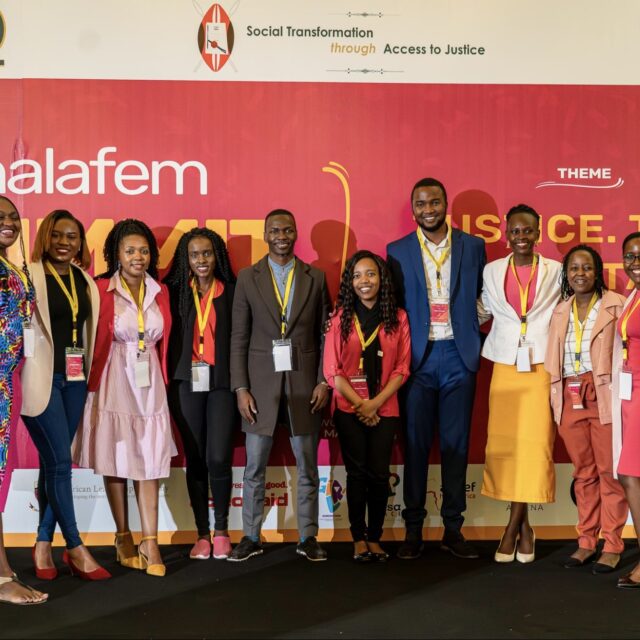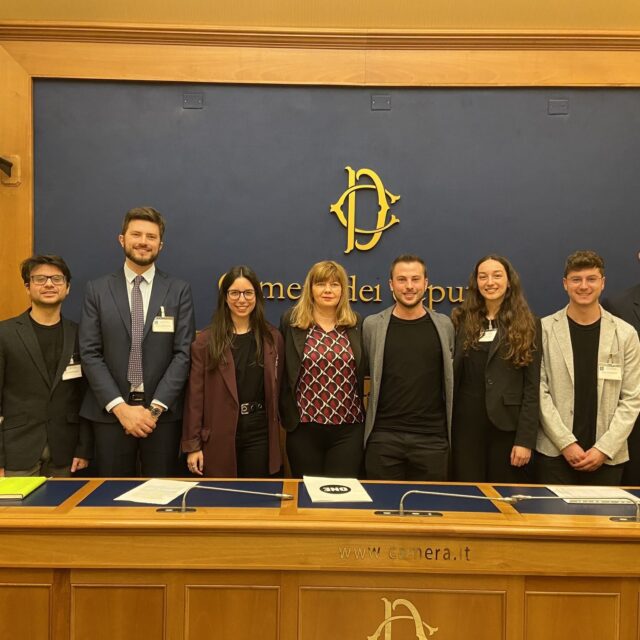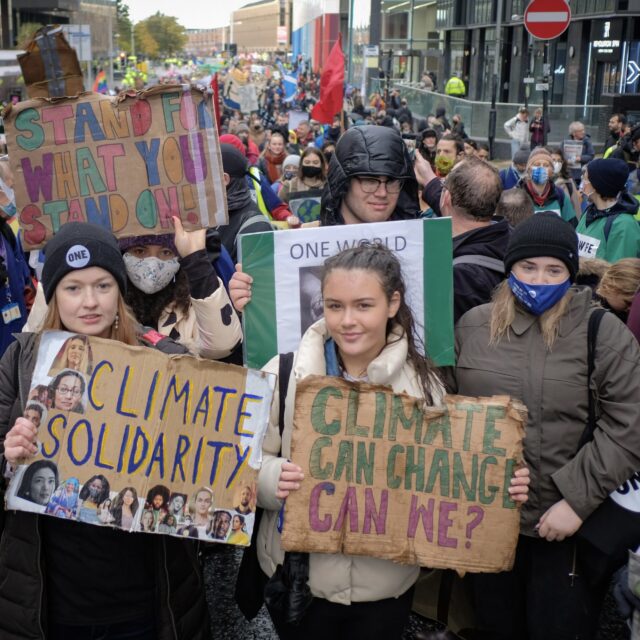Roberta Cancellieri and Mattia Masili are two Youth Ambassadors from Italy.
Young generations have been fighting to set the bar high for social inclusion. Young people have been in the ranks of all of the most recent social battles. Our voices are the most powerful weapons at our fingertips, and speaking up on inequalities is part of what being young and an activist means.
Since the COVID-19 pandemic began, there has been a need for everyone to speak up, especially young people. This pandemic has drawn a line between those who have the resources necessary to face it and those who don‘t. The World Bank has estimated that around 97 million people will fall into extreme poverty in 2021, which will deepen inequalities among people.
To deal with this crisis, the international community must reshape our societies and listen to younger generations. This is a turning point, and young people must use their voices to make sure that no one is left behind.
And younger generations have a clear demand to stop the unequal effects of COVID-19:Grant a seat at the table to all countries, including low-income countries. We need each and everyone‘s perspective on the issues we are facing now.
Addressing vaccines and inequality
Vaccine nationalism is still a major obstacle to an equal recovery for all. The world‘s richest countries have purchased enough COVID-19 vaccine doses to vaccinate their entire populations and still have a surplus supply. Meanwhile, less than 2% of doses worldwide have been administered in low- and middle-income countries.
Many rich countries, however, have already committed to sharing doses. It was recently announced that the EU is upping its donation by a further 200 million doses by mid-2022, and is going to invest €1 billion in the production capacity of vaccines in Africa. But the speed and scale of redistribution have not been fast enough to meet the global need. We need a clear timetable. Moreover, we lack a global outlook since not all countries are equipped to face an immunization campaign. That‘s the case in the DRC, which returned 1.3 million of their 1.7 million doses received last spring due to inadequate resources to administer them.
Right now, guaranteeing fast access to vaccines for everybody is crucial to ending the pandemic and achieving the 17 Sustainable Development Goals (SDGs). If not, this could lead to frightening new inequalities. Here are just a few examples that we must avoid:
- In low-income countries, a further 10 million children could drop out of school due to the pandemic. In Africa, this could push younger generations further behind their international counterparts.
- Most African countries are off-track to meet SDG 1 by 2030. And just 25 weeks of the pandemic wiped out 25 years of progress.
- The lack of equal access to vaccines will impact the fight against climate change. Delegates from least developed countries, which are disproportionately affected by climate change, risk being excluded from the COP26 climate conference in October due to quarantine and vaccination requirements.
Younger generations are speaking up and working to change this, and we must make our voices heard.
Addressing economics and inequality
A further challenge to eradicating inequalities globally relates to the economic crisis.
Most African states have faced the unspeakable choice of investing more into repaying debts than into healthcare and a COVID-19 response. To help alleviate some of this economic stress, so far:
- Some G20 countries decided to temporarily suspend debt repayments until December 2021. An important step, but still insufficient since almost 70% of debt in Africa is linked to private and multilateral creditors not aligned with the initiative.
- The Board of Governors of the IMF has approved a general allocation of Special Drawing Rights equivalent to US$650 billion last August. Although only about US$275 billion are promised to low- and middle-income countries, the IMF is working on some sort of country-to-country voluntary SDR redistribution mechanism.
Still, work must be done to combat the lingering economic effects of COVID-19. Younger generations and activists, just like us, are working to achieve just that.
Young voices matter
All these concrete measures could lead to a faster global recovery aimed at smoothing inequalities and fulfilling all 17 SDGs. But what the world needs now is the help of younger generations to do so.
Young generations have proved themselves to be not only engaged but also qualified to find a way forward and fight inequalities.
We want to make our voices heard because we will be the ones most affected by the decisions governments are making today. Talk to us, listen to us, and get us involved. We can be part of the solution.



